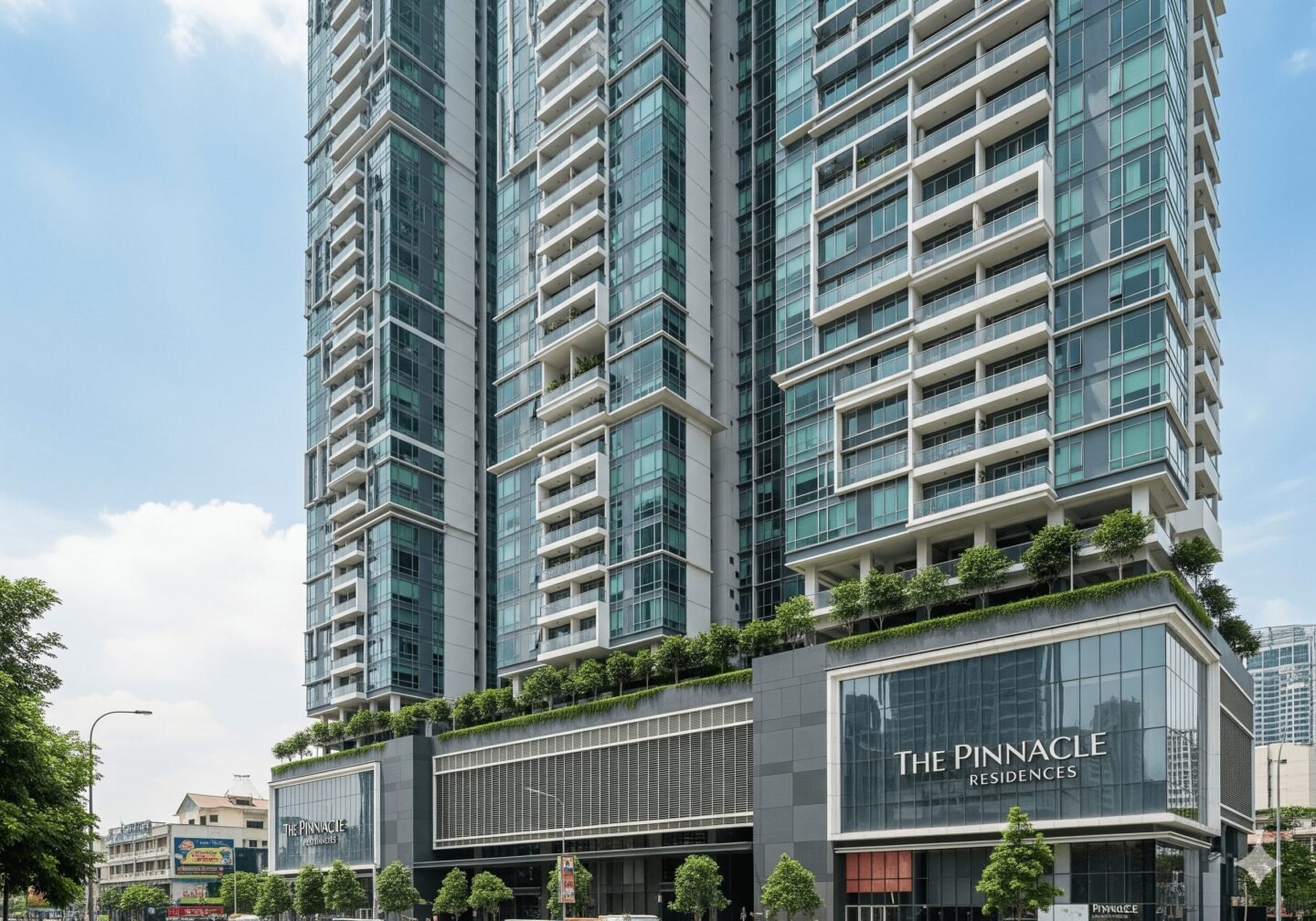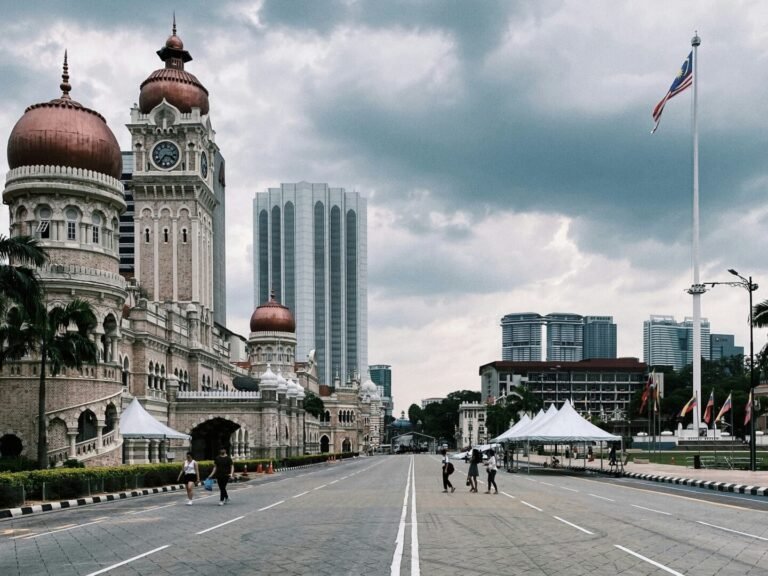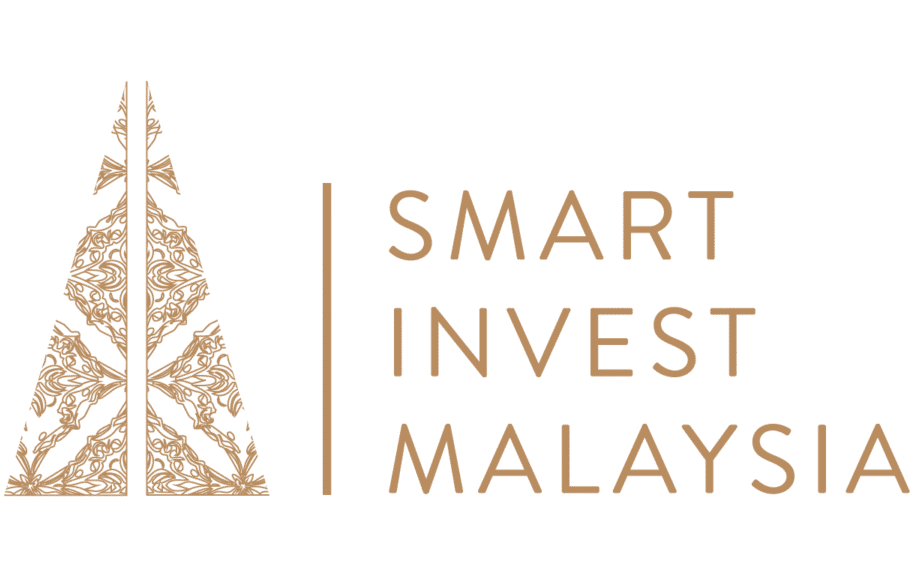Investing in Malaysia. 2025 is the Year.
Malaysia, often described as the economic crossroads of Southeast Asia, is increasingly attracting investors and entrepreneurs from all over the world. With resilient economic growth forecasted at over 4.5% for 2026 and a resolutely pro-business government, the country offers a unique ecosystem for those who know how to navigate it.
But where do you start? How do you turn an opportunity into a profitable and sustainable project?
Why Malaysia? The 5 Key Strengths of an Asian Tiger
Far from being a mere exotic gamble, investing in Malaysia is based on solid fundamentals and clear competitive advantages.
A Stable and Diversified Economy
Malaysia is no longer dependent solely on raw materials. The country has brilliantly transitioned to a diversified economy, driven by advanced electronics, digital services, and manufacturing. This diversification, supported by strong institutions, ensures remarkable resilience to global economic shocks.
A Strategic Gateway to ASEAN
Located in the heart of the Association of Southeast Asian Nations (ASEAN), Malaysia offers privileged access to a dynamic market of over 680 million consumers. Its world-class infrastructure (ports, airports, 5G network) makes it an essential logistics and trade hub in the region.
A Pro-Business Environment with Strong Incentives
The Malaysian government, through its investment promotion agency (MIDA), makes considerable efforts to attract foreign capital. This translates into attractive tax incentives, special economic zones, and simplified procedures for priority sectors like technology and renewable energy.
A Skilled and Competitive Workforce
With a strong education system and excellent English proficiency in the business world, Malaysia has a pool of skilled talent at a competitive cost. This is a crucial advantage for companies looking to build local teams.
An Exceptional Quality of Life
For investors considering expatriation, the country offers a very affordable cost of living, quality healthcare services, high safety standards, and a fascinating cultural richness. The “Malaysia My Second Home” (MM2H) residency program, although reformed, remains an attractive option.
The Most Promising Investment Sectors in 2025

Real Estate: A Mature and Accessible Market
The Malaysian real estate market, particularly in Kuala Lumpur, Penang, and Johor Bahru, remains a prime target. Unlike other countries in the region, Malaysia allows foreigners to acquire freehold properties, subject to certain minimum price conditions. The potential for rental yield and long-term capital appreciation is excellent.

Technology and the Digital Economy
Dubbed “Cyberjaya,” Malaysia aims to become a major technology hub. The government actively supports startups, e-commerce, fintech, and data centers. The ecosystem is dynamic, and opportunities are plentiful for innovative companies.

Renewable Energy and the Green Transition
In line with its climate commitments, Malaysia is investing heavily in green energy. Solar, biomass, and circular economy technologies benefit from strong political support and growing demand, offering solid prospects for specialized investors.

High-End and Medical Tourism
Tourism is a traditional pillar of the economy. Today, opportunities are shifting towards ecotourism, luxury resorts, and especially medical tourism. Malaysia is recognized for the excellence and competitive cost of its healthcare, attracting an international clientele.

The Practical Guide: Investing in Malaysia, Step-by-Step
Step 1: Choose the Right Legal Structure
The most common and recommended structure for a foreign investor is the “Sendirian Berhad” (Sdn. Bhd.), which is the equivalent of a private limited company. It offers legal protection and enhanced credibility. Other options, such as a representative office, exist for specific needs.
Step 2: Register Your Company
The process is handled by the Companies Commission of Malaysia (SSM). It involves reserving the company name, submitting the incorporation documents, and appointing at least one director residing in Malaysia (solutions exist for foreigners).
Expert Tip: A common mistake is to underestimate this step. Engaging a local “Company Secretary” is not only mandatory but also essential for navigating the bureaucracy efficiently.
Step 3: Open a Corporate Bank Account
Once the company is registered, opening a multi-currency business bank account is necessary. Local banks like Maybank or CIMB and international banks (HSBC, Standard Chartered) offer comprehensive services for foreign companies.
Step 4: Understand the Tax System
Malaysia has a relatively simple and attractive tax system.
Corporate Income Tax: The standard rate is 24%. SMEs benefit from a reduced rate on their first tier of profits.
No capital gains tax (except for real estate) or inheritance tax.
VAT (SST): The Sales and Service Tax applies to certain goods and services.
The most common and recommended structure for a foreign investor is the “Sendirian Berhad” (Sdn. Bhd.), which is the equivalent of a private limited company. It offers legal protection and enhanced credibility. Other options, such as a representative office, exist for specific needs.
The process is handled by the Companies Commission of Malaysia (SSM). It involves reserving the company name, submitting the incorporation documents, and appointing at least one director residing in Malaysia (solutions exist for foreigners).
Expert Tip: A common mistake is to underestimate this step. Engaging a local “Company Secretary” is not only mandatory but also essential for navigating the bureaucracy efficiently.
Once the company is registered, opening a multi-currency business bank account is necessary. Local banks like Maybank or CIMB and international banks (HSBC, Standard Chartered) offer comprehensive services for foreign companies.
Malaysia has a relatively simple and attractive tax system.
Corporate Income Tax: The standard rate is 24%. SMEs benefit from a reduced rate on their first tier of profits.
No capital gains tax (except for real estate) or inheritance tax.
VAT (SST): The Sales and Service Tax applies to certain goods and services.
Risks to Know and Pitfalls to Avoid
Bureaucracy
Although efforts are being made, administrative processes can sometimes be lengthy and complex. Patience and guidance from local experts are essential.
The Political Context
Malaysia enjoys overall stability, but the political landscape can be fluid. It is important to stay informed about regulatory changes that could impact business.
Cultural Specifics
Understanding the nuances of the local business culture, which values personal relationships and respect, is a key success factor.
Ready to Take the Leap?
Malaysia is a land of opportunity for savvy investors who take the time to understand its market. The key to success lies in meticulous preparation and quality support.
The next step is to apply it to your project.
Frequently Asked Questions (FAQ)
Can a foreigner buy a house in Malaysia?
Yes, absolutely. Foreigners can purchase freehold properties, provided the purchase price exceeds a minimum threshold set by each state (usually around 1 million Ringgit, or approximately €200,000 / $215,000).
What is the average salary in Malaysia?
In 2025, the average monthly salary in Kuala Lumpur is around RM 6,500 (approx. €1,300 / $1,400), but it varies greatly by sector. A senior developer can earn much more, while salaries in the service industry are lower.
What visa do I need to live and work in Malaysia as an investor?
The most common visa is the Employment Pass, which is tied to your company. There are also specific visas for investors and the long-term residency program “MM2H.”
What is the tax system for an expatriate in Malaysia?
A tax resident in Malaysia (spending more than 182 days a year in the country) is taxed on their Malaysian-sourced income according to a progressive scale. Foreign-sourced income remitted to Malaysia is generally tax-exempt, which is a major advantage.
Yes, absolutely. Foreigners can purchase freehold properties, provided the purchase price exceeds a minimum threshold set by each state (usually around 1 million Ringgit, or approximately €200,000 / $215,000).
In 2025, the average monthly salary in Kuala Lumpur is around RM 6,500 (approx. €1,300 / $1,400), but it varies greatly by sector. A senior developer can earn much more, while salaries in the service industry are lower.
The most common visa is the Employment Pass, which is tied to your company. There are also specific visas for investors and the long-term residency program “MM2H.”
A tax resident in Malaysia (spending more than 182 days a year in the country) is taxed on their Malaysian-sourced income according to a progressive scale. Foreign-sourced income remitted to Malaysia is generally tax-exempt, which is a major advantage.
